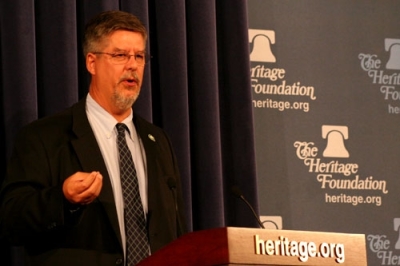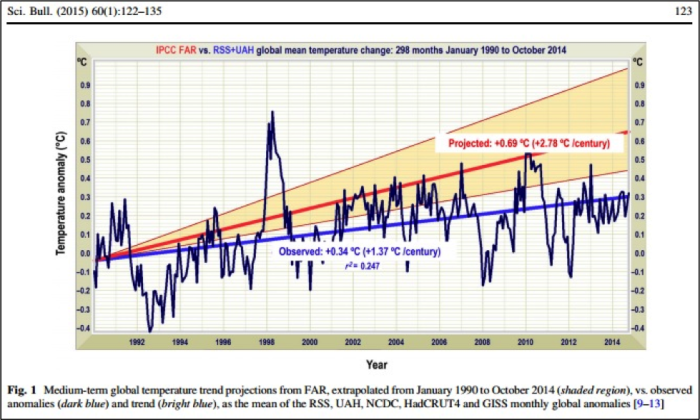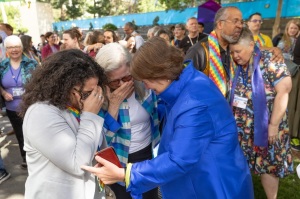Global Warming: Powerful New Evidence Surfaces That Contradicts Manmade Claims

On the heels of the Vatican's announcement that the Pope intends to urge support for an international agreement to fight global warming by reducing human emissions of carbon dioxide (CO2) from fossil-fuel energy use, a new peer-reviewed scientific paper reveals powerful evidence that CO2 emissions contribute far less to global warming than widely thought.
The paper, "Why models run hot: results from an irreducibly simple climate model," appeared in the January 8 edition of Science Bulletin (formerly Chinese Science Bulletin), "the Orient's equivalent of Science or Nature," as co-author William Briggs, a statistician, describes it. Briggs's co-authors are Harvard-Smithsonian astrophysicist Dr. Willie Soon, British journalist and mathematician Christopher Monckton of the Science and Public Policy Institute, and University of Delaware Professor of Climatology Dr. David R. Legates, a Senior Fellow of The Cornwall Alliance for the Stewardship of Creation.
The authors set out to explain why the computer models on which the U.N. Intergovernmental Panel on Climate Change (IPCC) and others who believe rising atmospheric (CO2) concentrations will cause dangerously high global warming simulate increases far in excess of what is observed, as shown in this graph:

They conclude that it's because the models all assume that feedbacks—the many ways the climate system responds to changes within it—on balance magnify any warming that takes place, whereas observations indicate that they reduce it instead.
This would make the climate system, like other natural systems, robust, resilient, self-regulating, and self-correcting, i.e., would allow it to vary but within bounds. The opposite assumption would make it prone to catastrophe driven by "runaway positive feedback loops."
These authors are not alone in calling for reduced estimates of the warming effect of added CO2 in the atmosphere (called "climate sensitivity"). The IPCC itself reduced its own estimate from 2.3˚C to 1.7˚C per century between the pre-publication and final drafts of its 2013 Fifth Assessment Report (AR5). From its inception in 1988 until 2013, the IPCC estimated climate sensitivity at 2.0˚C to 4.5˚C, but AR5 reduced its lower-end estimate to 1.5˚C, which still assumes that feedbacks are net positive, since without feedbacks doubled CO2 concentration would raise GAT by only 1.0˚C to 1.2˚C.
Meanwhile, the Non-governmental International Panel on Climate Change (NIPCC) estimates climate sensitivity of 0.3˚C to 1.0˚C. Climate scientists Nicholas Lewis and Marcel Crok estimate it at 1.25˚C to 3.0˚C, with a best estimate of 1.75˚C. Georgia Tech climatologist Judith Curry keeps track of these and many other reassessments of climate sensitivity on her blog.
These findings support an argument the Cornwall Alliance has made for years: that climate feedbacks are net negative rather than positive, reducing rather than magnifying the warming effect of added atmospheric CO2.
For instance, in our 2009 study A Renewed Call to Truth, Prudence, and Protection of the Poor: An Evangelical Examination of the Theology, Science, and Economics of Global Warming, we argued:
The Biblical worldview … suggests that the wise Designer of Earth's climate system, like any skillful engineer, would have equipped it with balancing positive and negative feedback mechanisms that would make the whole robust, self-regulating, and self-correcting. The United Nations' Intergovernmental Panel on Climate Change (IPCC) and other climate alarmists, however, all depend for their projections of dangerous warming on computer climate models that have a strong bias toward positive feedbacks. In addition to the Biblical worldview, two empirical considerations render that assumption highly doubtful.
First, it conflicts with what we know about climate feedbacks. With no greenhouse effect, Earth's surface temperature would average about 0°F; with it, but with no climate feedbacks, it would be about 140°F; and with both the greenhouse effect and feedbacks, it is about 59°F. Net climate feedbacks, in other words, are strongly negative, eliminating about 58% of greenhouse warming. But greenhouse gases are greenhouse gases, whatever their origin. It is highly unlikely, therefore, that the climate models are correct in assuming strong net positive feedback. The commonly calculated temperature increase from doubled CO2 without feedbacks is 2.16°F …, and subtracting 58% yields 0.9°F [0.5˚C] as the likely post-feedback warming from doubled CO2. That is only one sixth the midrange estimate of the IPCC and is not dangerous.
Second, one particular assumption about feedbacks is that clouds are a net positive feedback, i.e., that they respond to surface warming in a way that increases it. But, as the science chapter of this paper points out, actual observation of cloud response to surface temperature shows they are a net negative feedback—they reduce both warming and cooling, keeping temperature within a narrow range.
Climate scientists around the world are reducing their estimates of climate sensitivity. The implication is that whatever harms are alleged to result from manmade global warming must also be reduced. And that makes it more difficult to justify the hundreds of billions, or trillions, of dollars global warming alarmists want us to spend to reduce CO2 emissions.
This is particularly true since doing so would require delaying the time when the world's poorest billion can substitute clean electricity, generated from coal or natural gas, for the dirty wood and dried dung that are their primary cooking and heating fuels today, smoke from which kills some 4 million a year and afflicts hundreds of millions with respiratory diseases that reduce their ability to work and lift themselves out of poverty.
To learn more, read Protect the Poor: Ten Reasons to Oppose Harmful Climate Change Policies.




























